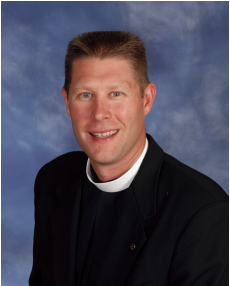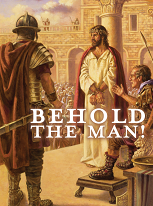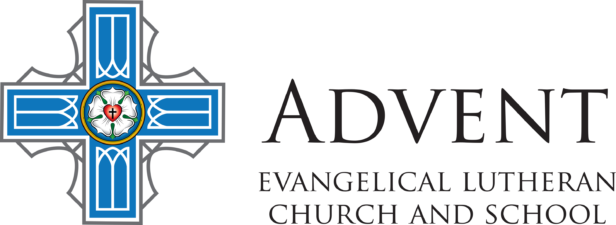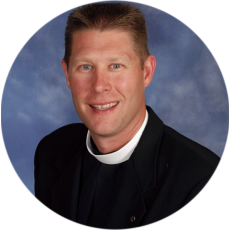Advent Online
Sermons
Check here for the latest content from Advent Lutheran Church.
Check here for the latest content from Advent Lutheran Church.
We are proud to present a range of electronic resources for individual study, general fellowship and spiritual growth, including: Advent’s YouTube Channel, our SoundCloud Sermons, and more Resources from the LCMS.
If you’d like to support our multimedia programs, please make a donation.
Live Stream Services
Watch Services & Bible Studies Here!
Sundays: Divine Services at 8:15am & 10:45am
Bible Studies: Sunday at 9:30am
Wednesdays: During Advent & Lent
Special Services: Ash Wednesday, Holy Thursday, Good Friday, Easter Vigil, Thanksgiving, Christmas Eve, Christmas Day, etc.
Other Special Live Streams: LCMS Services, Visitors, Funeral Services, etc.
Follow Pastor Mackay’s blog on Pastor’s Pen
Behold the Man!
 Ash Wednesday, March 6th, is the first day of the season of Lent. Lent is a time of prayer, repentance, and renewal.
Ash Wednesday, March 6th, is the first day of the season of Lent. Lent is a time of prayer, repentance, and renewal. This day has been called “Ash Wednesday” since the beginning of its observance in the seventh century. The name comes from the practice of placing ashes on the forehead as a sign of sorrow and repentance. Throughout Scripture, ashes are a sign of God’s wrath and condemnation and were thusly seen as a sign of penitence, sorrow, and mourning. The sign of the cross is made with the ashes, along with the words, “Dust you are and to dust you will return” (Genesis 3:19). Those words are part of the curse given to Adam and Eve following their fall into sin. The words keep us mindful of God’s judgment upon sin, our subsequent mortality and need for a Savior. The cross, however, serves to remind us that Christ has conquered sin, death and the devil for us. Though we will all someday die, yet we shall live! As part of our Ash Wednesday Divine Service at 7:00pm, we will be including the imposition of ashes for those who desire. If you would like to receive the sign of the cross from the ashes, please come forward before our service begins, down the center aisle. Before our service begins, please spend the time in quiet meditation and prayer. Please meditate on the Small Catechism (LSB p.321), Psalm 32, 51, or 90 (in the front). Christian Questions & Answers is also excellent (LSB p.329ff).
- The ashes come from the Palms that were used for last year’s Palm Sunday service!
- Olive oil was commonly used in Jesus’ time to moisturize & protect the skin, in addition for the sacred use of “anointing”. Don’t worry, it will all come off with a little soap and water!

- Our focus this Lenten Season is “Behold the Man!” A devotional booklet is provided for each member household and located in your member mailbox. If you are a guest or visitor, we have one available for you free of charge! We will gather each Wednesday and “Behold the Man!” in a chronological reading and meditation of the Passion account. JOIN US FOR LENT AND EASTER SERVICES!
- Some people “give something up” for the Lenten season (which consists of 40 days, not counting Sundays, before Easter). You may do this if you wish, in order to help focus on the many gifts that God gives us. Fasting was common in OT & NT times and many still do so today (Jesus fasted in the desert). Ask one of the Pastors if you have questions or concerns!
Our theme and devotional booklet have been written by Rev. Jeff Hemmer and published by Concordia Publishing House. I leave you with these wise and winsome words from Pastor Hemmer:
“Behold the man!” proclaimed the unwitting preacher Pontius Pilate in one of the shortest yet most profound sermons ever recorded. This will be our endeavor this Lententide and Easter Sunday. Behold the man, God in human flesh, Jesus. His incarnation will provide the basis for our meditation and proclamation on His Passion. And His real bodily suffering and death will provide the basis for our full-throated proclamation on Easter morning of a bodily resurrection, not just of Jesus but also for His saints. Real bodies that have suffered, wept, bled, prayed, eaten, hoped, and more will be those raised incorruptible from their graves on the day of Jesus’ return. We will fix our eyes and our preaching on the man Jesus, contemplating the inescapable fact—indeed the most important fact in the course of human history—that God became man. The Second Person of the eternal triune God, whom we confess in the Nicene Creed as “God of God, Light of light, very God of very God . . . of one substance with the Father, by whom all things were made,” became a living, breathing, flesh-and-blood human being, a man. In some ways, you can understand that the first heresy the Christian Church had to contend with was that of Gnosticism, the hyperspiritual religion that held that because no man could be God, the Christ could not be God. Gnosticism is alluring because it tidies everything up, gives Christianity a more attractive spiritual veneer, and pulls its adherents out of the mire of this world and gives them something otherworldly to strive for. Considered correctly, it becomes pretty hard to spiritualize Christianity—a religion that bases its existence on the enfleshment, the incarnation, of God—into the mess of disembodied, matter-rejecting, hyperspiritual Gnosticism. When God has flesh and blood, skin and teeth, cells and nuclei, DNA and RNA, it’s difficult to contend for the disembodied spiritual against the material. If God has a body, bodies must matter. In case you aren’t convinced of the pervasiveness of the second-century heresy of Gnosticism, even in our twenty-first-century context, attend a funeral. If you hear talk only of heaven with nary a word of a bodily resurrection, you’ve witnessed firsthand modern-day Gnosticism. If the preacher doesn’t deal with the body in the casket as the real person whose death has assembled the mass of grieving relatives and friends, if he talks only about the bodyless soul in heaven, he hasn’t preached a genuinely Christian funeral. In other words, if he gives preference to the spiritual over the material, he succumbs to the Gnostic heresy the earliest generations of the Church sought to guard against by preaching the incarnation and resurrection of Jesus. This Lent, we will consider what it means that God became man. In preparation for the celebration of a real, bodily, flesh-and-blood, bone-and-sinew resurrection, the resurrection without which our faith and our preaching are all in vain, consider the body of Jesus that exists in order to be nailed to a cross. The spiritual, bodyless Son of God became the embodied, enfleshed, incarnate Son of Mary. In Jesus, God has human flesh, a body, just like you. What could be more profound? Behold the Man!
Pastor Mackay






